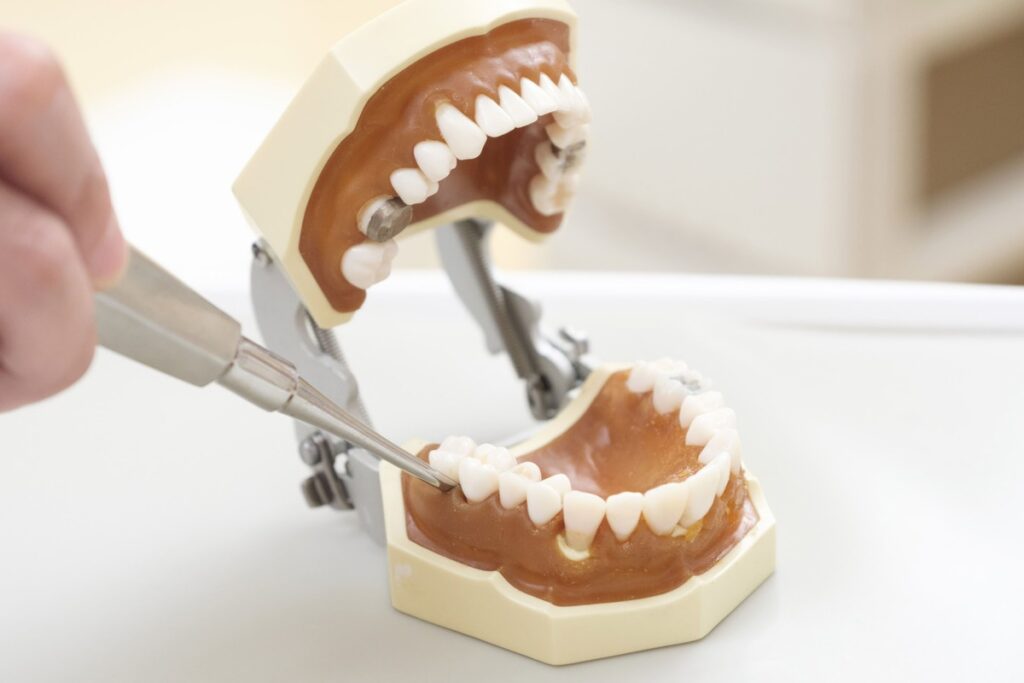Wisdom teeth, the third set of molars in the back of your mouth, typically emerge in our late teens or early twenties. While they can be a valuable asset to the mouth when healthy and properly aligned, often they are misaligned or cause various dental problems, necessitating extraction for the sake of oral health.
Wisdom teeth may need to be removed if they are impacted, meaning they do not have enough room to emerge or grow normally. Impaction can lead to pain, infection, and other dental issues, including damage to neighboring teeth and bone, cysts development, and overcrowding, making extraction a necessary procedure for many.
Symptoms that can indicate problems with wisdom teeth include jaw pain, swelling, difficulty opening your mouth, bad breath, and an unpleasant taste when eating. If you experience any of these symptoms, it might be time to consult a dental professional.
Professional Evaluation: The Role of X-rays and Dental Assessments
A dental professional will perform a thorough examination, including X-rays, to determine the position of your wisdom teeth and if there’s a need for extraction. These assessments provide critical information on the impact of wisdom teeth on your oral health.
Preparing for Your Procedure: Steps to Take Before Surgery
Before extraction, your dentist or oral surgeon will give you detailed instructions to prepare, which may include dietary restrictions, medication adjustments, and arranging for post-surgery rest and recovery time.

What Happens During Wisdom Teeth Extraction
The process of wisdom teeth extraction is a meticulous surgical procedure designed to remove one or more of your wisdom teeth. The operation is typically performed by an oral surgeon or a dentist with specialized training in surgical procedures. Here’s a detailed step-by-step breakdown of what happens during the extraction:
- Initial Consultation and X-ray: Before the extraction day, you’ll have a consultation with your dental professional, where they’ll take X-rays of your mouth to assess the position of your wisdom teeth and plan the best course of action for removal.
- Preparation and Anesthesia: On the day of the procedure, the area around the wisdom tooth is numbed using local anesthesia to ensure you feel no pain during the extraction. For more complex cases or for patients with dental anxiety, sedation or general anesthesia might be offered to make the procedure more comfortable.
- Incision: Once the area is numb, a small incision is made in the gum tissue to expose the tooth and underlying bone. This allows the surgeon to access the wisdom tooth for removal.
- Bone Removal: Often, a layer of bone blocking access to the tooth root needs to be removed. This is done with precision to avoid unnecessary damage to the surrounding bone structure.
- Tooth Sectioning: If the wisdom tooth is impacted or too large to be removed in one piece, the surgeon may divide the tooth into sections. This makes it easier to remove the tooth through the small opening and minimizes the impact on surrounding tissues.
- Tooth Removal: Each section of the tooth (or the whole tooth, if not sectioned) is then carefully removed. Special tools are used to gently loosen the tooth from its socket, ensuring that the extraction is as smooth as possible.
- Cleaning the Site: After the tooth is removed, the extraction site is thoroughly cleaned to remove any debris or remaining tooth fragments. This step is crucial to prevent infection and promote healing.
- Stitching and Gauze: To aid in healing, the gum incision may be stitched up, often using dissolvable stitches that will disappear on their own after a few days. A piece of sterile gauze is then placed over the extraction site to help stop the bleeding and to facilitate the formation of a blood clot in the socket—a critical part of the healing process.
- Post-Procedure Care Instructions: Before you leave, you’ll be given detailed instructions on how to care for the extraction site, manage pain and swelling, and what foods to eat and avoid. You’ll also learn signs of potential complications to watch for, such as infection or dry socket.
- Recovery: The initial recovery period typically lasts a few days, during which you may experience swelling and discomfort. Ice packs, pain medication, and rest are recommended to aid in recovery. A follow-up appointment may be scheduled to ensure the site is healing properly.
The wisdom teeth extraction process is performed with the utmost care to ensure patient comfort and to promote quick recovery. Following your dental professional’s aftercare instructions closely will help ensure a smooth and effective healing process.
Recovery and Aftercare: Ensuring a Smooth Healing Process
Post-extraction, following your surgeon’s aftercare instructions is crucial for a smooth recovery. This includes taking prescribed medications, maintaining oral hygiene with gentle care, and adhering to a soft food diet while avoiding activities that can dislodge the blood clot at the extraction site.
While wisdom teeth extraction is generally safe, it carries potential risks like any surgery. Infection, dry socket, where a blood clot fails to form or is dislodged, and nerve damage are possible complications, highlighting the importance of following post-operative care instructions closely.
To reduce the risk of complications, avoid smoking, vigorously rinsing your mouth, and using straws for the first few days. Practice good oral hygiene and attend follow-up appointments to ensure proper healing.
Recovery varies but generally involves a few days of swelling and discomfort managed with medication. Most people can resume normal activities within a week, with complete healing taking a few weeks to months. Do you want to know more about the healing process? Read this article about healing after wisdom teeth extraction?
Pain and swelling can be effectively managed with ice packs and prescribed pain relievers. Resting and keeping your head elevated can also reduce swelling.
Choosing the Right Place where to get a Wisdom Teeth Extraction in Miami
Selecting an experienced oral surgeon or dentist is crucial for a successful extraction. Look for professionals with a strong track record in wisdom teeth removal and who prioritize patient comfort and care.
If you suspect your wisdom teeth are causing problems or if you’re experiencing symptoms, don’t wait for the discomfort to escalate. Contact a trusted dental professional in Miami to evaluate your needs and discuss if wisdom teeth extraction is right for you. Proactive care can prevent more serious issues and keep your smile healthy and bright.







